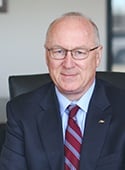
As we strive in the US to obtain enough personal protective equipment to keep first responders and the general populace safe, the rules for importing these essential items seem murky at best. There is a lengthy list of PPE products flowing into the United States, so let’s target masks for today’s discussion.
Generally speaking, there are 3 types of masks; surgical face masks, non-surgical face masks, and filtering face piece respirators (FFR) that we’re seeing imported today, by many names and manufacturing standards.
There are reusable cloth masks as well as single-use products, although we realize that with the current shortage, these single-use masks are being re-used multiple times before discarding. The masks may be used by the general public and in health care settings.
So what are the rules?
The U.S. Food and Drug Administration (FDA) has advised that face masks, face shields, and filtering facepiece respirators (FFRs) that are marketed to the general public for general, non-medical purposes, such as for use in construction and other industrial applications, are not regulated by FDA.
In most cases, these general-purpose masks, face shields, and FFR’s require no device marketing authorization, provided that no claim is made that the product is to be used to prevent infection or to cure, treat, or prevent disease and are not intended to be used in a health care setting.
What if these products are used in a health care setting by health care personnel or intended for disease prevention?
- If the masks are intended for a medical purpose, manufactured to medical specifications, or labeled or marketed for use in a health care setting, then they are subject to standard FDA regulations.
- However, on April 24, 2020, the U.S. Food and Drug Administration (FDA) issued an Emergency Use Authorization (EUA) for masks used only for “source control.” Source control refers to the use of a facemask to contain a wearer’s respiratory secretions to help prevent transmission from individuals who may or may not be infected with COVID-19. Under the EUA, registration and device listing requirements for masks are not required for these masks utilized only for “source control.” Manufacturers that comply with the conditions of authorization in the EUA do not need to take any action.
- Class II devices, such as surgical masks that provide liquid barrier protection, are intended for antimicrobial or antiviral protection or particulate filtration that are not covered by the EUA.
In essence, where the masks are used, by who, and the claims made on the packaging and/or marketing is essential when considering whether or not the FDA regulates the product and whether your shipment gets stopped for inspection upon arrival.
This is an evolving story requiring the importer to understand the complete details about the manufactured product, its intended use, and all packaging, marketing, and claims made about the product.
Check out our other blog on importing PPE articles into the EU.
Tradewin can help by reviewing product specifications and labeling against the most current regulations to help mitigate the costly delays that importers are facing.




